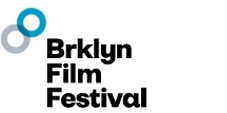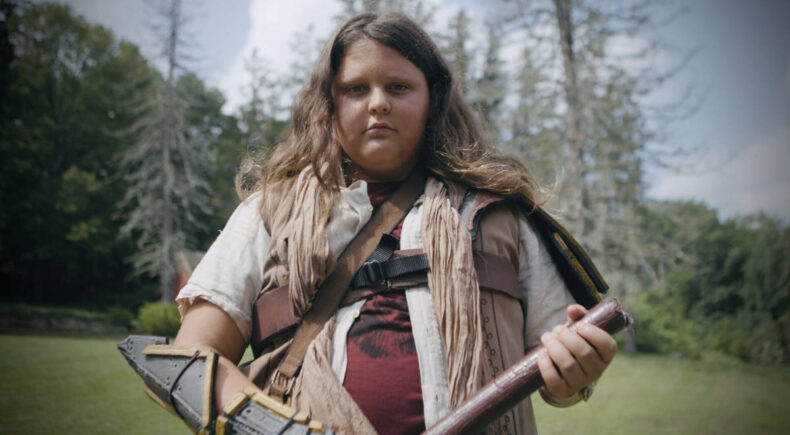We Can Be Heroes
Directors: Carina Mia Wong and Alex Simmons
United States, 2024, 87 min
Shooting Format:UHD/4K
Festival Year:2025
Category:Documentary Feature
Genre:Documentary
Cast:Eli, Dexter, Abby, Miranda, Max, Judson Packard
Crew:Writers: Carina Mia Wong, Alex Simmons. Jennifer Wood, Krista Manis
Email:agsimmons@gmail.com
Synopsis
Sometimes, finding your tribe requires a bit of magic. For attendees of a live action role-playing (LARP) camp in upstate New York, the deeply accepting environment has given neurodivergent, queer, and self-proclaimed "nerdy" teenagers the space and community for self-discovery that they have never found anywhere else. As the campers immerse themselves in this imaginative world, they discover inner strength, heal from past traumas, and emerge as the heroes they are meant to be, both in the fantasy realm and in real life.
From directors Carina Mia Wong and Alex Simmons, WE CAN BE HEROES perfectly captures and celebrates the small, fleeting, but profoundly formative moments that make up the most intense years of adolescence, with a little help from foam swords.
About the directors
Carina Mia Wong - Carina Mia Wong is an award-winning documentary filmmaker and journalist. She's driven to tell stories that highlight the misunderstood, the complexity of healing, and the power of magical thinking.
Her first feature documentary, WE CAN BE HEROES — made in partnership with Concordia Studio and Muck Media — had its world premiere at SXSW’s Documentary Competition in March 2024, and won the Special Jury Award for Bravery and Empathy.
Carina began her career at VICE ON HBO, where she earned two Emmy Awards and a New York Press Club Award for outstanding journalism and research in the undercover investigation on the Chinese government's oppression of Uyghur Muslims (2020). Carina went on to produce National Geographic's TRAFFICKED WITH MARIANA VAN ZELLER, gaining intimate access into black markets, and HBO's WE’RE HERE, exploring queer identity in conservative America through the art of drag.
In her spare time, Carina works on her photography, developing and manipulating black and white 35mm film. She also has a deep love for psychology and spoke at the 2023 Ferenczi International Conference on Psychoanalysis in Budapest, Hungary.
Born and raised in northern New Jersey, Carina’s a proud daughter of Filipinx and Chinese immigrant parents.
Alex Simmons - Alex Simmons is an award-winning director and producer. WE CAN BE HEROES is his first feature documentary.
Simmons is a co-founder of Muck Media and has directed documentaries and series for Apple TV+ (Dear...), National Geographic (Trafficked with Mariana van Zeller), and Univision (Chasing El Chapo). Additionally, he served as a field producer on Science Fair and an editor on Own the Room, both directed by Cristina Costantini and Darren Foster, and both on Disney+.
His non-fiction work has been nominated for Emmys, the Livingston Award for Young Journalists, and he is the recipient of an Overseas Press Club Award for his work reporting on Big Tobacco’s tactics in the developing world.
Previously, Simmons wrote and directed the narrative film, BUDDYMOON, which won the Audience Award at Slamdance and was released in theaters by Orion Pictures.
Simmons has also directed music videos and concert films with artists such as Death Cab for Cutie, Sigur Rós, Yasiin Bey, and The Shins.
Filmmakers' note
This film is a love letter to anyone who is or ever was a teenager.
For me, those tumultuous years between 13 and 19 -- where growth and transformation come at you awkwardly, beautifully, and in multitudes -- were very hard. I struggled with depression and panic attacks and lived in fear of imperfection.
On the inside, I was confused that the adults around me seemed to dismiss the big emotions I struggled to deal with. How could they not believe that it felt as big as it did? Weren't they teenagers once too?
I promised myself that I would never forget what it was like to go through those adolescent years. And that when I was an adult, I’d always believe the teenagers around me.
Those promises sat inside me for many years. Those raw emotions and hormonal spikes melted away. Then one day, my best friend told me about the Wayfinder Experience -- a quirky, charming, and magical live action role-play (LARP) camp she went to growing up, where kids and their imaginations were set free into the forests of upstate New York.
Other than its obvious enchanting allure, I immediately felt that the campers must act out their subconscious in these “adventure games” they played. Those emotions and experiences that were too hard to process in a developing mind would surely come tumbling out in a fantasy world of their own creation. I know mine would have.
It wasn’t until I was introduced to the camp’s director, Judson Packard, and they told me of one camper who was able to grieve the death of his grandma by sobbing over their fallen comrades after a fight with a mythical dragon, did I know that this documentary needed to be made.
After two years of development and once I met Dexter, Abby, and Cloud, the film, as is its tendency, took on a life of its own, becoming filled with their electric energy and captivating stories. But amidst this organic evolution, the driving ethos never changed. We did our best to see the world through their eyes, to follow them as they led their own odysseys, to embrace the magnitude of their emotional terrain, and to see the campers as they see themselves.
What we never expected, however, was how pertinent this exploration of adolescence became following the pandemic, amidst worsening climate change and the burgeoning of a mental health crisis among teenagers. It all of sudden felt imperative to create a portrait of what it’s like to be a teenager at this particular moment in time and ever more pressing to wholeheartedly, unreservedly believe them. --CARINA MIA WONG
When we first started filming WE CAN BE HEROES, I hoped that we would find characters that were as incredible as the types of surprising, quirky, brilliant, and hilarious young people we filmed while making our documentary Science Fair. However, The Wayfinder Experience Summer Camp surpassed any expectations I might have had and proved to be its own universe of singular teenagers and dedicated counselors, brimming with imagination and heart-on-your-sleeve emotions.
One of the biggest things that separates the camp, and this film, from other documentaries I’ve worked on is the fantastical elements involved. From the start, we envisioned WE CAN BE HEROES as a project with dual perspectives – one rooted in verite realism and the other in the fantastical realms of the LARP storylines. This is where the idea was born to film “reality” one way, with a 16:9 aspect ratio, and film “fantasy” another way, with a letterboxed 2:39 ratio. Also, when we first started filming I had been watching a lot of the sci-fi series Legion, and we studied how they transitioned between aspect ratios and visual looks, each of which represented multiple versions of reality and the otherworldly.
As a filmmaker, it was so fun to do all kinds of things you normally don’t get to do in a documentary, such as shooting interviews on a castle set, capturing slow-motion footage with freshly lit purple smoke bombs, or recording J.R.R. Tolkien-inspired narration in a VO booth in Manhattan. Yet all of these over-the-top elements were grounded in what the campers told us they imagined during the middle of an epic LARP “adventure game,” and how even the most fantastical storylines can feel very real when you fully commit and lose yourself in the game.
Finally, in post-production, we collaborated with some very talented people to bring all of these disparate and unique elements together. Rebecca Adorno Dávila joined me in the monumental task of editing and shaping hours and hours of verite and LARPing footage. Stewart Griffin, our Colorist, crafted completely distinct visual palates to differentiate between reality and fantasy. Annie Medlin, our Sound Editor, took dozens of audio channels and melded them into a beautiful orchestra of sound textures and voices. (On some days we had over three dozen characters on microphones all talking in character at the same time.) Finally, Dan Deacon, our composer – collaborating with the singular viola da gamba player Niccolo Seligmann – blended a variety of styles and genres to create emotional throughlines for our characters, throughlines that took them all the way from their home lives to their arrivals at camp, and finally into the fantastical elements of the LARP.
Through it all, our hope has been that while the subculture of LARP remains uniquely its own, the emotional journeys our characters embarked upon are universal. Growing up, Carina and I didn’t go to LARPing camp, but not a day went by on this project that we didn’t relate to what our characters were going through. We always tried our best to let that guide us. -- ALEX SIMMONS



